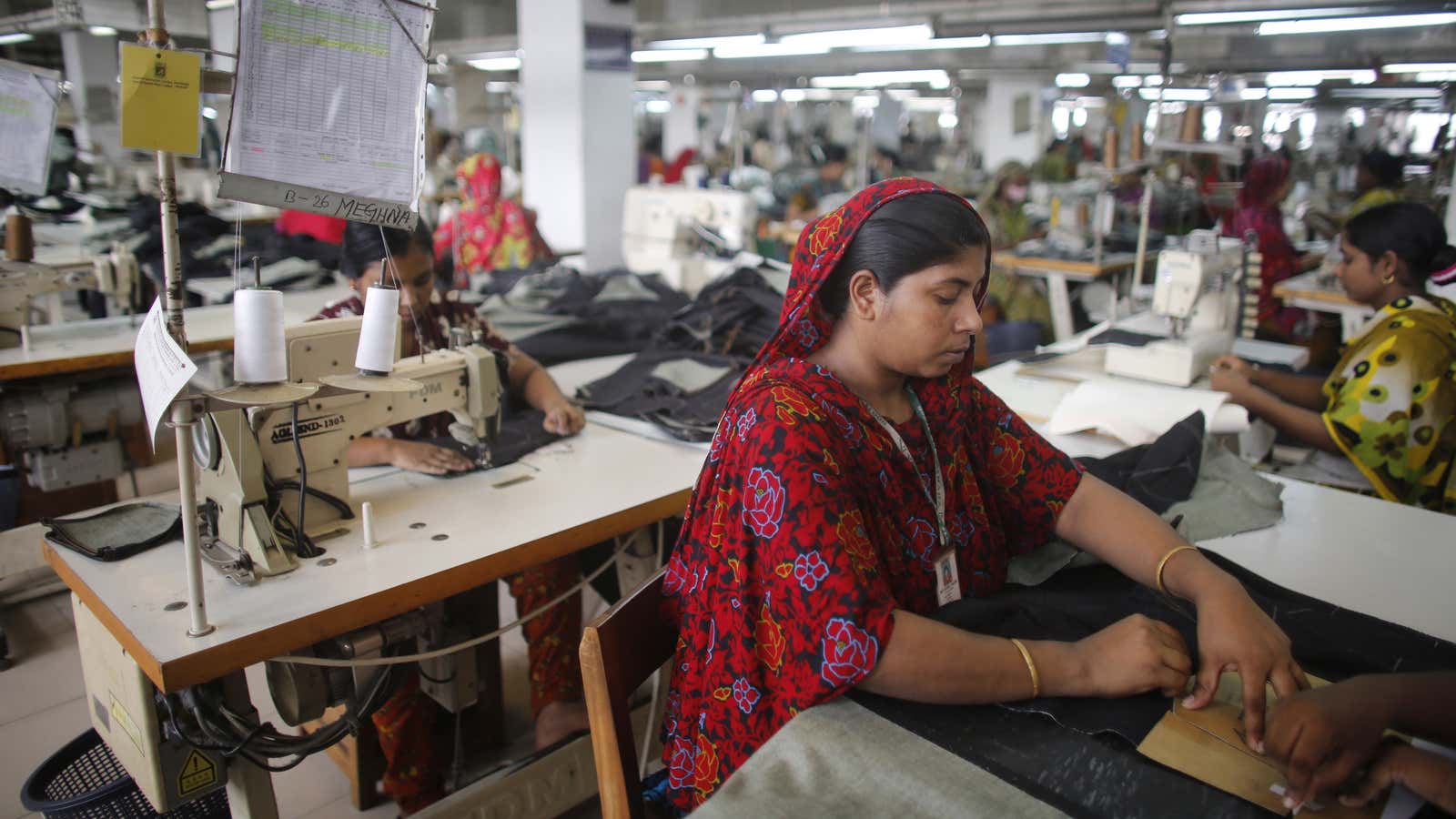H&M, which made its billions selling trendy, inexpensive fashion, is throwing its weight behind a cause you might not expect. It wants businesses and governments to stop paying people in cash, and switch instead to paying them digitally, through forms such as mobile money or digital transfers into bank accounts.
That simple change could make a substantial difference in the lives of millions, especially women, according to the Better Than Cash Alliance, a group of governments, international organizations, and companies hosted by the UN’s capital development fund. The group just welcomed H&M as its newest member.
Switching to digital payment has the potential to deliver significant benefits, to workers and recipients of government welfare programs around the world who are still paid in cash, the group says. Digital payments leave a clear trail, promoting transparency and accountability in supply chains. They help ensure people are paid what they’re owed and reduce the risk of wage theft, such as the kickbacks sometimes demanded by those handing out payments in cash. And importantly, they increase the number of people included in the formal financial system, giving them access to credit and savings accounts.
“And then, of course, building an inclusive financial system works to build the foundations for an inclusive economy,” explains Ruth Goodwin-Groen, managing director of the Better Than Cash Alliance.
Even as digital payment options become more common around the world, Goodwin-Groen says some markets are more prepared for a digital switch than others. Mobile money is already widely used in Kenya, for example.
So far the Better Than Cash Alliance has worked mostly with governments, but the companies it is now bringing on board—Coca Cola and Grupo Bimbo, the Mexican baked-goods giant, are also members—can help it greatly in its mission. H&M, the first fashion company to join, is one of the Bangladeshi garment industry’s biggest customers, for instance, which gives it a great deal of leverage in guiding the practices of its suppliers in the country.
A study by the Better Than Cash Alliance of Bangladesh’s garment industry found 90% of salaries paid by Bangladeshi businesses are still done in cash, and that digital payments could save factories time and money. For the company, having suppliers pay wages digitally can generate savings, increase security, and provide more accurate data on wages, the brand’s social sustainability manager, Gustav Loven, said in a statement.
A switch to digital payments is likely to make the biggest difference, however, to women workers in less-developed countries—they make up 80% of the workforce in Bangladesh’s garment industry, for example. All together, H&M says 65% of the 1.6 million people employed along its supply chain are women, many with limited access to financial services.
Digital payments are safer than carrying home pay in banknotes, and they can give women greater control over the money they earn, Goodwin-Groen points out: “If you think about having to take cash home in your pocket or on your phone or on a bank-account card, which do you think would be easier for a mother-in-law, or a husband, or a brother, or anyone else to get access to?”
“For many women in particular, having a financial identity and being part of the financial system is a first step to social inclusion,” she says. “This is the beginning of a broader inclusion agenda for women and other clients or workers.”
